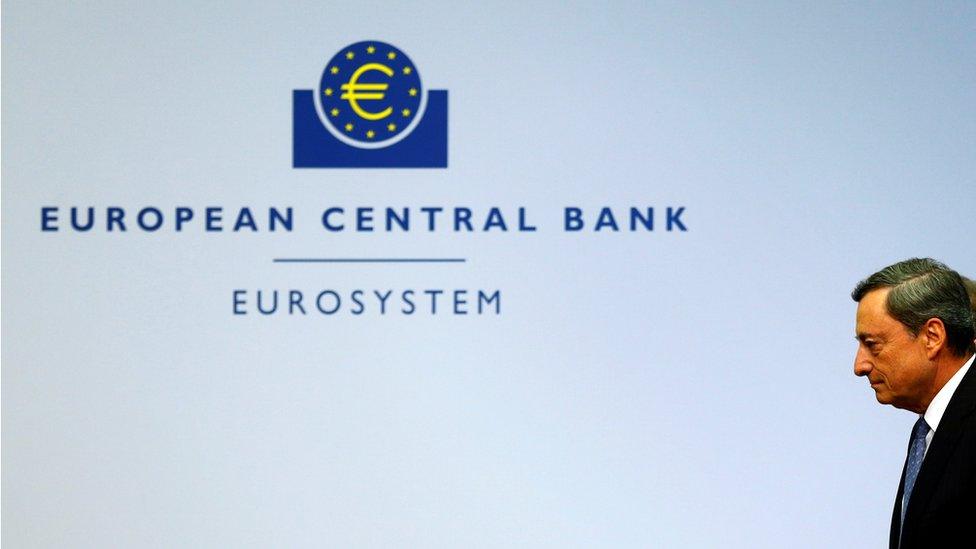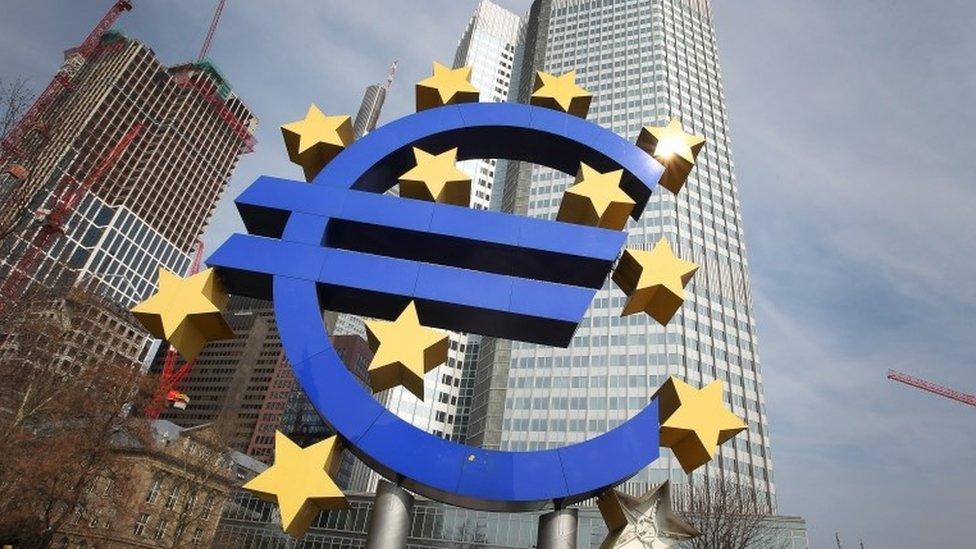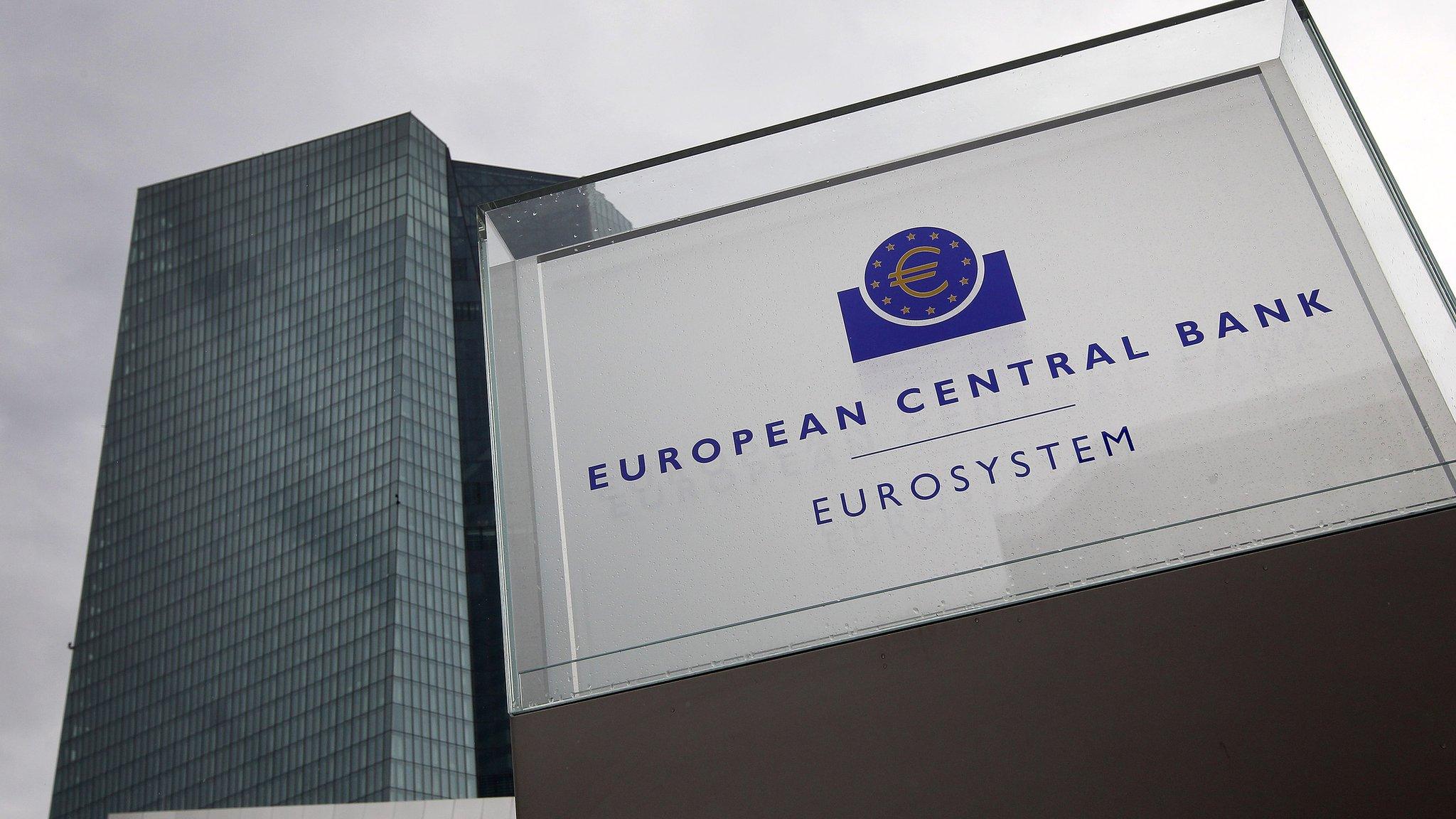European Central Bank keeps key interest rate on hold
- Published

ECB president Mario Draghi has left interest rates alone
The European Central Bank (ECB) has kept its main interest rate unchanged at zero for another month.
The decision by the eurozone central bank's 25-member governing council to leave its benchmark borrowing rate on hold had been expected.
It was also decided not to change the ECB's bond-buying stimulus scheme, which was extended last month amid worries about economic growth.
ECB head Mario Draghi said the eurozone economy is stronger, but still fragile.
He told a news conference that deflation risks have "disappeared" and that economic surveys are positive. But this was no time for the ECB "to relax" and that the stimulus programme had to continue and even be increased if necessary.
The 19-bloc eurozone still faces sluggish growth, and worries about the Italian banking crisis have intensified concerns about financial stability in the bloc.
Last month, the ECB said it would extend its bond-buying until at least December 2017, but cut its purchases by €20bn a month.
The €80bn-a-month quantitative easing (QE) scheme had been due to end in March. In a move that surprised markets, the ECB said it would only buy bonds worth €60bn a month from April.
'Subdued'
Mr Draghi said on Thursday: "If warranted, to achieve its objective, the ECB will act by using all the instruments available within its mandate.
"In particular, if the outlook becomes less favourable, or if financial conditions become inconsistent with further progress towards a sustained adjustment in the path of inflation, we stand ready to increase our asset-purchase programme."
Some of the most recent economic data has been positive, and a jump in inflation across the bloc has allayed fears the eurozone may slip into deflation.
But inflation is still just half of the bank's 2% target, and, Mr Draghi, was driven mostly by rising oil prices.
"Underlying inflation pressures remain subdued," he said. "A very substantial degree of monetary accommodation is needed for euro area inflation pressures to build up and support headline inflation in the medium term."
His playing down of a faster rise in inflation saw the euro currency fall to a day's low against the dollar and a 10-day low against sterling.
The euro dropped to as low as $1.0603 and to 86.26 pence against the pound before making a partial recovery.
- Published4 January 2017

- Published8 December 2016
